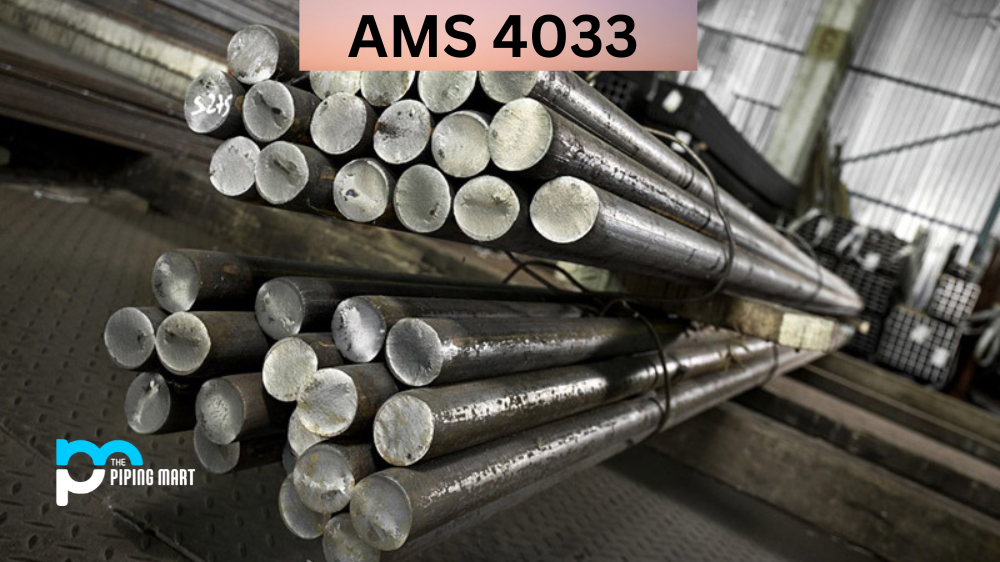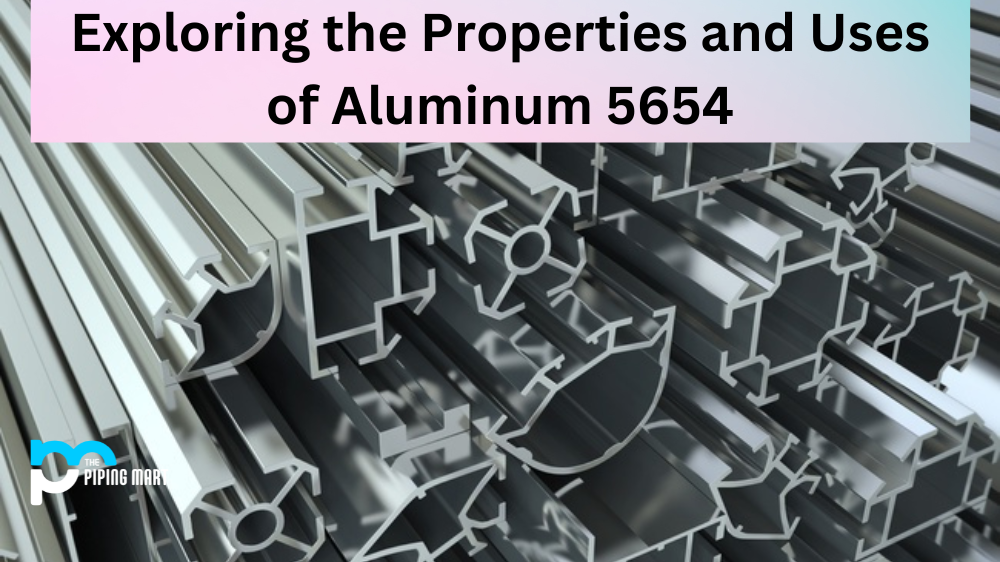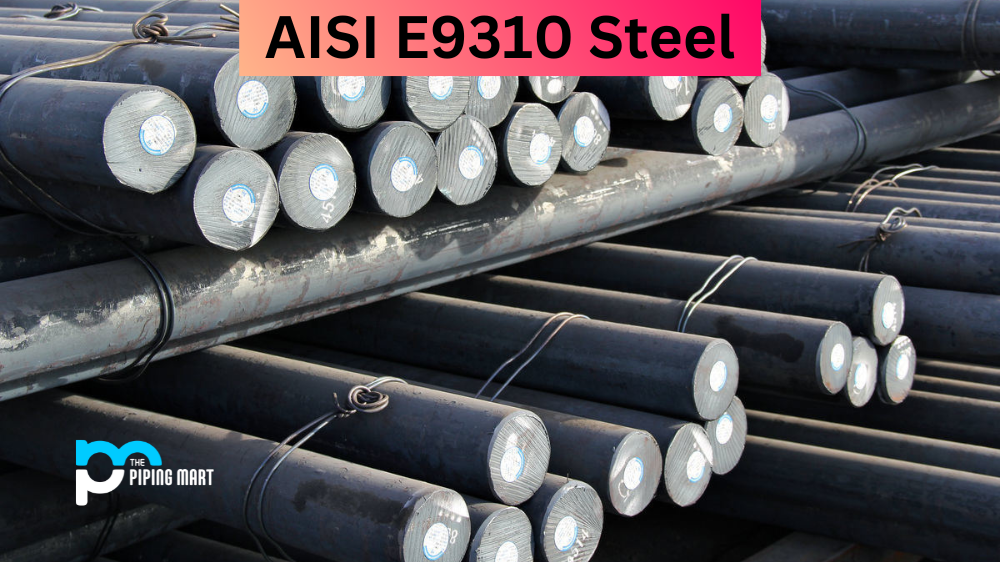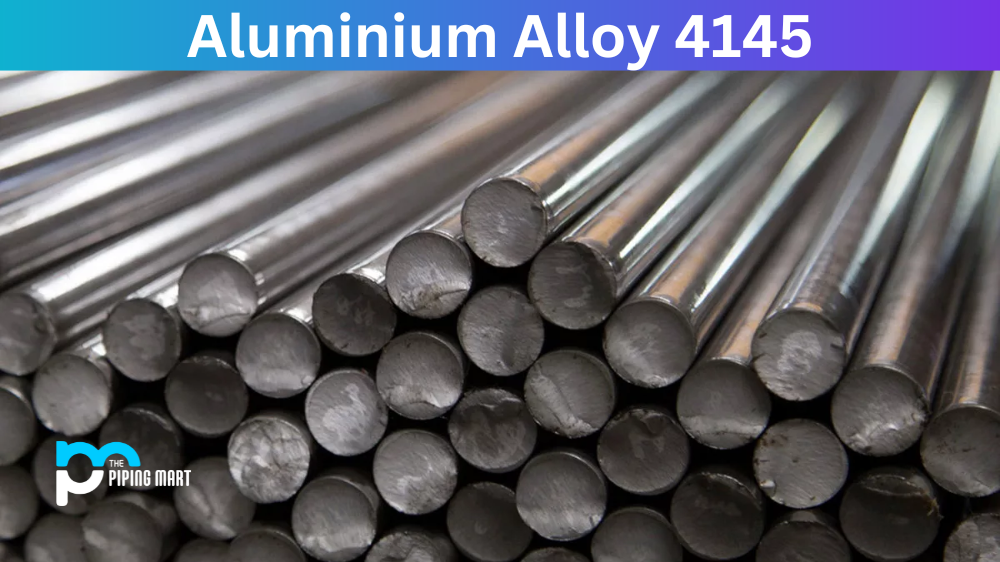AMS4033 is a popular steel alloy widely used in many industrial applications. Its unique composition and mechanical properties make it a preferred material in many manufacturing processes. Understanding the properties of AMS 4033 is essential in selecting the suitable material for your specific application. This blog post will delve into the composition, physical and mechanical properties, and uses of AMS 4033 to comprehensively understand this steel alloy.
What is AMS 4033?
AMS 4033 (also known as 2024 Aluminum Alloy) is a high-strength alloy known for its excellent corrosion resistance and durability. It’s a popular material in the aerospace and defence industries, with high demand for high-performance materials. AMS 4033’s strength, toughness, and flexibility make it an ideal choice for manufacturing applications such as gears, shafts, and bearings. The material can be machine finished to achieve tight tolerances and offers exceptional resistance to wear and tear, making it a go-to option for manufacturing parts and components that need to withstand demanding conditions. Its unique properties make AMS4033 an excellent solution for projects that require high-strength materials with superior resistance to corrosive environments.
What Form Is AMS 4033 Available at Piping Mart?
- Pipes
- Tubing
AMS 4033 Composition
Composition AMS 4033: AMS4033 is a low alloy steel typically containing 0.28 – 0.33 weight per cent carbon, 0.60-0.90 weight per cent manganese, and small amounts of silicon and copper. The steel is also alloyed with small quantities of molybdenum, nickel, and chromium to improve its strength, toughness, and corrosion resistance.
| Element | Content(%) |
|---|---|
| Aluminum | 93.5 |
| Copper, Cu | 4.4 |
| Silicon, Si | 0.8 |
| Magnesium, Mg | 0.5 |
| Cromium, Cr | ≤0.10 |
| Manganese, Mn | ≤0.6 |
AMS 4033 Physical Properties
AMS 4033 has excellent physical properties, making it ideal for many industrial applications. It has a density of 7.85 g/cm3 and a thermal conductivity of 46.6 W/(mK). The coefficient of thermal expansion is 11.7 x 10^-6/°C, and the specific heat is 470 J/kgK.
| Properties | Metric | Imperial |
|---|---|---|
| Density | 2.8 g/cm3 | 0.1018 lbs/in3 |
| Melting Point | 510°C | 950°F |
AMS 4033 Mechanical Properties
Mechanical Properties AMS 4033: The mechanical properties of AMS 4033 make it a popular choice in many manufacturing processes. It has a tensile strength of 930–1080 MPa and a yield strength of 720–930 MPa. The elongation at break is typically 15–20%, and the impact toughness is 55–90 Joules. The steel has high corrosion resistance and good weldability, which adds to its mechanical properties.
| Properties | Metric | Imperial |
|---|---|---|
| Hardness, Brinell | 105 | 105 |
| Hardness, Knoop | 132 | 132 |
| Hardness, Rockwell A | 42.8 | 42.8 |
| Hardness, Rockwell B | 67 | 67 |
| Hardness, Vickers | 118 | 118 |
| Tensile Strength, Ultimate | 427 MPa | 62000 psi |
| Tensile Strength, Yield | 290 MPa | 42000 psi |
| Elongation at Break | 20% | 20% |
| Modulus of Elasticity | 72.4 GPa | 10500 ksi |
| Poisson’s Ratio | 0.33 | 0.33 |
| Fatigue Strength | 262 MPa | 38000 psi |
| Shear Modulus | 28 GPa | 4060 ksi |
AMS 4033 Equivalents
| ASTM B210 | ASTM B211 | ASTM B221 | ASTM B241 | ASTM B247 |
| ASTM BB241 | DIN 3.1255 | MIL T-15089 | QQ A-200/2 | QQ A-225/4 |
| QQ A-250/4 | QQ A-367 | SAE J454 |
AMS 4033 Uses
Uses AMS 4033: AMS 4033 finds application in many industries that require a durable and robust material. It manufactures aircraft components, pressure vessels, and various industrial machine parts. High tensile and yield strengths make it suitable for applications requiring high-stress strength. Its excellent weldability and machinability make it even more versatile.
AMS 4033 Hardness
AMS 4033 can be measured differently, including Rockwell, Brinell, and Vickers hardness tests. The typical Rockwell hardness for AMS 4033 is 33–37, while the Brinell hardness is 352–388 HB. The Vickers hardness is usually around 380-420 HV.
AMS 4033 Heat treatment
Heat treatment is commonly used to modify the mechanical properties of AMS 4033. The material can be heat-treated to achieve different mechanical properties, such as higher strength, flexibility, and toughness. The most commonly used heat treatment methods for AMS 4033 are quenched, tempering, annealing, and normalizing.
Conclusion:
In conclusion, AMS 4033 material is a versatile and durable steel alloy widely used in many industrial applications. Understanding its composition, physical and mechanical properties, as well as its typical uses and hardness, is essential in selecting the right material for your specific application. With its exceptional properties and ease of production, it is no surprise that AMS 4033 has become a staple in many industrial manufacturing processes.

Meet Bhavesh, a seasoned blogger with a wealth of knowledge and experience. From metal products manufacturing to retail, Bhavesh has a diverse background in various industries and is dedicated to sharing his insights and expertise with readers.




